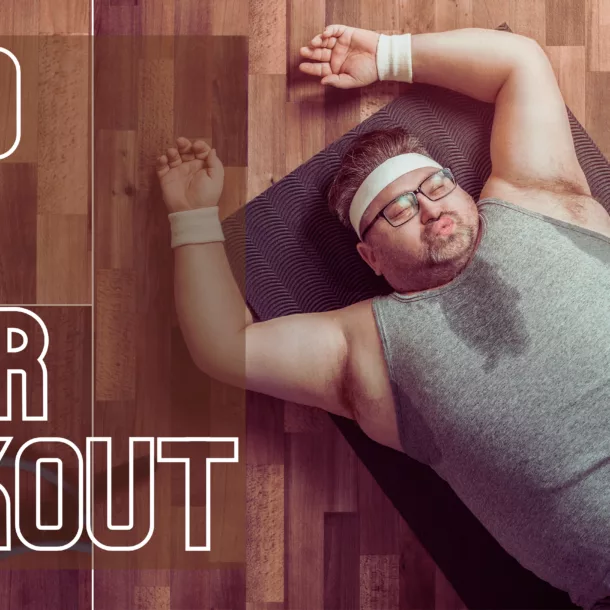
8 Caffeine Myths Debunked.
I need to get something off my chest.
A little-known fact about me is that I didn’t use to love coffee. Well, to tell the truth, up until the age of thirty-five, I didn’t even drink the stuff.
Sacrilege, I know, right?
Honestly, the whole coffee thing kind of passed me by, and despite hearing that it might help me perform on race day and that it might even increase my life expectancy, it really had no place in my life.
Well, the good news is I’m reformed and gladly enjoy a strong black coffee once a day, but I still get that coffee has a few stigmas attached to it, so grab a cup, sit back and let’s debunk a few myths surrounding coffee.
Myth 1: Caffeine will dehydrate me.
We all know that you need 2+ litres of fluid a day to be in a hydrated state, and if you are like me, then this myth was one of the reasons I never really got into coffee.
Strictly speaking, caffeine is a diuretic, which is a fancy way of saying “causes your kidneys to produce more urine”.
That being said, there are enough studies showing a net benefit of drinking a volume of fluid with caffeine in it, meaning you will pee out less overall than you intake.
That doesn’t make coffee or caffeinated drinks the ideal thing to hydrate with, but it doesn’t mean that those drinks are going to dehydrate you.


Myth 2: Caffeine makes you train harder.
Caffeine will make you train harder some of the time.
The big point here is the usage of caffeine on a regular basis and increasing its intake every time you train is not a guaranteed way of achieving new levels of performance.
A tolerance effect happens with all of us, and it’s proven that if you overuse caffeine, you can become habituated to it and will fail to get the same effects.
Used when you want to perform maximally or during really arduous training sessions, it will absolutely help; however, used all the time, it’s not going to make you train harder.
Myth 3: The more coffee you drink, the better you will perform.
When I used to lecture at college, we would often perform testing days where we would allow the students to control the dose of certain drugs and see if it would elicit the desired response.
As you can guess, the general rule every 18-21-year-old went by was if 1 was good, then 100 was better, which was always true off caffeine.
The ideal dose for athletes is somewhere between three to six milligrams per kg of body weight.
Above that, you will most likely experience effects such as anxiety, jitters, and possibly heart palpitations in some populations.
The golden rule here is that more is not better regarding caffeine consumption.
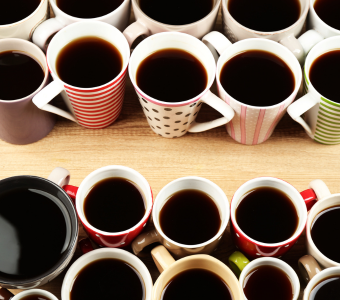
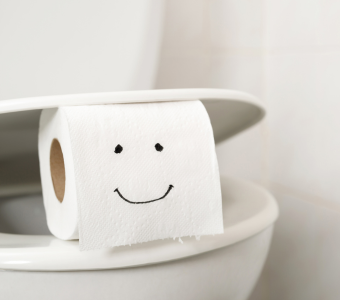
Myth 4: Caffeine will make me need an emergency restroom break.
Lots of people will often report that consuming gels or liquids high in caffeine during a training session or even a race, they will need to stop to relieve themselves.
The science here strongly points to the fact caffeine, under stress, increases motility in the gut biome, speeds up the gastrointestinal process, and causes a laxative effect on some people.
If you are one of these people, then caffeine probably isn’t something to be using during a race, and despite not being something that affects everyone, your only way of knowing is when its probably a little late.
Myth 5: You must give up caffeine a week before a race.
The short answer here is not always.
The origin of this one is that your caffeine sensitivity increases when you abstain from it, so if you aren’t drinking it the week before a race, taking it on race day will give you an extra boost.
Whilst technically true, the issue you face with this one is the same as a lot of people who go cold turkey from any substance in the fact you trade off the caffeine for symptoms such as irritability, disturbed sleep, and heightened mood swings.
Not things you want/need the week prior to a big race.
Moderating that caffeine intake is the recommended route here because those costs outweigh the benefits.
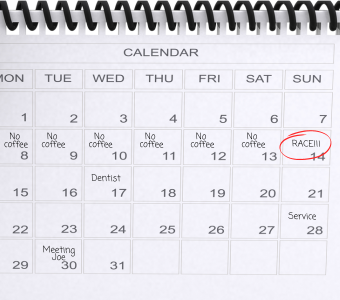
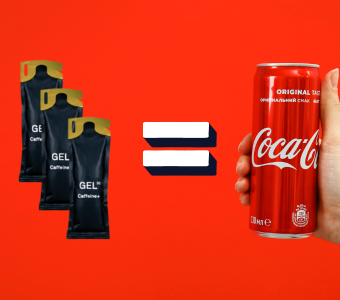
Myth 6: A can of cola mid-race is the same as three gels for caffeine content.
I love cyclists and some of the myths you get in that sport.
If we break down a can of cola, you see approximately 8 to 10mg of caffeine per 100 ml. Whereas a specific caffeine gel will be between 50 to 100mg.
If you need a big shot of caffeine mid-race, then you are better off grabbing the gels than you are a can of cola. Despite its added hydration, you’re at the low end of caffeine if that is the chemical you really desire.
Myth 7: Caffeine is only for adults.
I love this one because it has somehow become a universal myth around the world.
I am by no means saying your four-year-old needs a double espresso to outperform others in their gymnastics class (I would pay really good money to see this, though), and there are, in fact, very limited amounts of research to say you should limit caffeine intake simply because they are under a certain age.
The big reason caffeine is limited to this age group is because of the disruption to sleep and how damaging effects on growth and development have been seen the world over.
Sleep is the key component to the maturation phase, especially up and through the early teenage years (12 to 16 predominately).


Myth 8: A coffee a day will add ten years to your life.
I wish I could keep track of whether caffeine, red wine or dark chocolate was adding or subtracting to my life expectancy.
There is evidence that caffeine consumed in moderation is generally seen as a good thing for most people.
However, as the saying goes, everything in moderation, including moderation.
If you need a boost before a race, then it’s really not something to concern yourself with if it’s adding or subtracting from your performance.
Don’t get caught up in the headlines of niche facts from obscure research here. Enjoy your coffee, take your gels, and give it your best as a true Dark Horse does.
Want to come and talk about coffee and myths even more? Join the crew and chat with the coaching team live during our live weekly coaching calls, where topics like this are discussed, and a brew is highly recommended.
Related Articles
No products in the cart.


